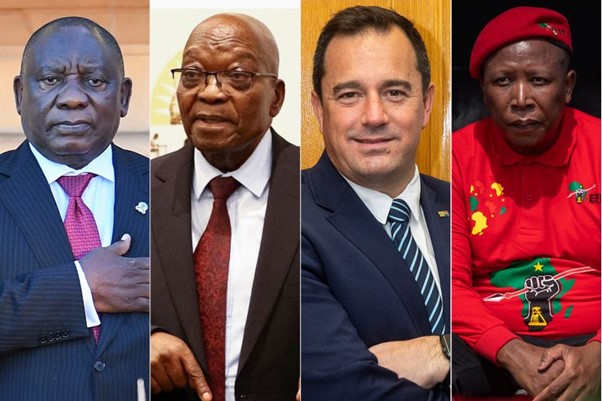23,000 polling stations have opened across South Africa as the country goes to an election that’s set to pose the biggest challenge to the ruling African National Congress’s (ANC) three-decade dominance of national politics.
The ANC is largely expected to garner between 40% – 45% of the vote, forcing a coalition government for the first time in independent South African history.
Strong opposition is coming from the leading opposition parties, the Democratic Alliance (DA), the Economic Freedom Fighters Party (EFF), the Inkatha Freedom Party, and the newly registered uMkhonto we Sizwe (MK).
Four main presidential candidates are running in this election: Cyril Ramaphosa (ANC), John Steenhuisen, former President, Jacob Zuma (MK) and Julius Malema (EFF).
There are some 28 million registered voters in South Africa. There are more women (55%) than men (45%) registered to vote. Two out of every five voters in today’s election were less than 10 years old at the time South Africa became independent.
Voters in South Africa do not directly vote for a president but instead elect 400 members of parliament, who will in turn elect the new president within 30 days.
The president is expected to garner at least 50% of the votes from the MPs to be declared the leader. Failure to win an outright majority in today’s elections will mean that the person to be elected as president will have to seek support from one or more of the other parties in parliament.
The ANC is expected to win most seats in this election but will fail to get more than the required 200 MPs for an outright win, requiring a coalition agreement to form a government.
South Africa has had five presidents since independence; Nelson Mandela (1994 – 1999), Thabo Mbeki (1999 – 2008), Kgalema Motlanthe (2008 – 2009), Jacob Zuma (2009 – 2018), Cyril Ramaphosa (2018 – ).
South African voters are majorly concerned about unemployment, perennial load-shedding, high cost of living, corruption, and, interestingly, the Israel-Gaza war.



